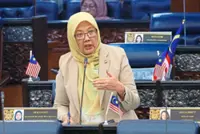PETALING JAYA: The Public Complaints Bureau (BPA) handles all complaints involving government agencies, while the Enforcement Agency Integrity Commission (EAIC) monitors and investigates complaints of misconduct against enforcement officers or agencies.
However, a new ombudsman’s office overseeing government bodies could soon assume the roles of both bodies.
A key reform of the unity government, the ombudsman’s office will independently investigate complaints of maladministration and poor service delivery in the public sector and recommend solutions to address these issues.
The Prime Minister’s Department legal affairs division (BHEUU), the agency drafting the enabling law, said it is considering the proposal for the ombudsman to take over the functions of these two bodies.
“Among the proposals made to BHEUU in multiple holistic stakeholder meetings is that the Malaysian Ombudsman, once established, should take over the functions of the BPA and the EAIC,” the division told The Star.
It said the policy to set up the ombudsman office is in the drafting stage, after considering feedback and proposals from stakeholders.
The Centre to Combat Corruption and Cronyism (C4), a non-governmental organisation involved in the steering committee to develop the policy, said part of its engagement with BHEUU included reviewing best practices from similar ombudsman offices abroad.
BHEUU added that it expects to table the Bill to establish the Malaysian Ombudsman’s office in Parliament this year, although it did not specify whether this would be in the July or October session.
In an emailed response, the division outlined five key roles and functions of the office.
First, it will protect citizens by investigating complaints of maladministration in government.
Second, it will promote accountability to prevent abuse of power and corruption within the civil service.
Third, the ombudsman will encourage good governance to build public trust in the civil service.
Fourth, it will resolve disputes between the public and government departments, helping citizens avoid court proceedings.
Lastly, investigations and studies conducted on institutions and government organisations will enable the ombudsman to propose improvements for public service delivery.
“The government is reviewing all recommendations and proposals from stakeholder sessions to ensure that the Malaysian Ombudsman is holistic and is able to function as a body that is effective, efficient and independent, in line with the Madani government’s aspirations to reform laws and institutions,” BHEUU added.





